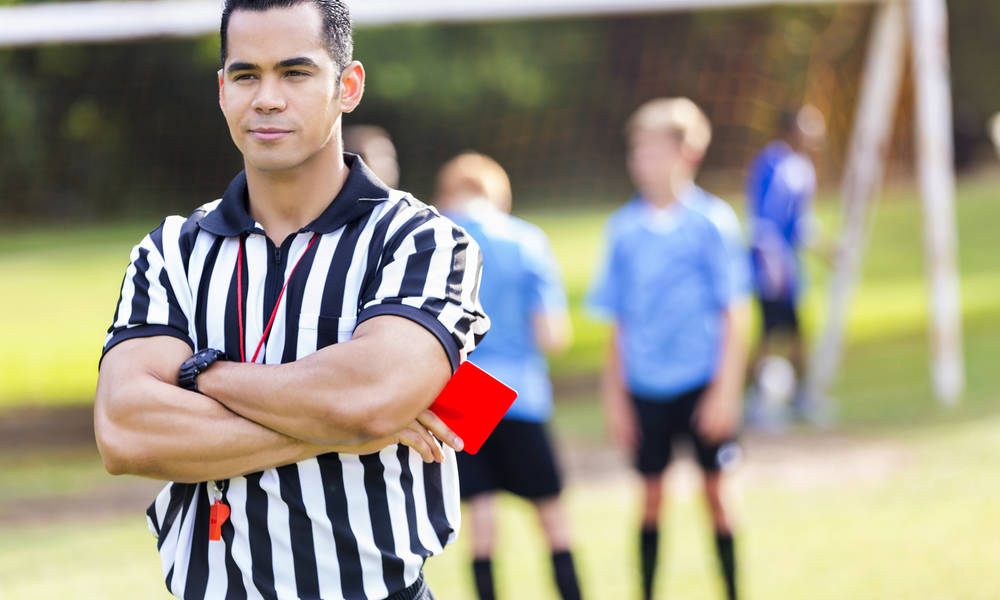
Sports Officials Group Works Toward Safer Playing Fields for Referees
Abuse from parents and coaches has led to a high turnover rate among referees. To address the issue, the National Association of Sports Officials not only offers benefits to protect its members, but it is also promoting better behavior and trying to get younger people involved in officiating.
Anyone who has attended a youth sports match will agree that parents can sometimes get out of hand. Fed up by the bad behavior he was experiencing, one Oklahoma youth soccer referee created a Facebook page, which collects and posts video of parents and fans behaving in violent or unsportsmanlike ways against referees.
This poor behavior has consequences for the entire field of sports officiators, says Barry Mano, founder and president of the National Association of Sports Officials. According to NASO’s 2017 National Officiating Survey, more than 70 percent of the 17,487 referees surveyed quit the job within three years of starting. Their main reason for doing so? Extensive abuse from parents and coaches.
Beyond the high attrition rate, which has led to a shortage of referees in many parts for the U.S., the survey also revealed that the field of officiating is graying. “Back in 1972, the average age of people getting into officiating was 18 years old,” Mano said. “In 2016, the age was 42.”
But it all makes sense to Mano. “You have these referees out there making [very little] money, trying to referee for players who have limited skills, and parents who are rabid,” he said. In addition, there’s very limited security at game sites, so referees are called to both adjudicate the games and act as some type of security force—something Mano says is “nuts.”
Knowing the different situations referees may face on the playing field, NASO offers its members benefits to protect them. These include a $6 million liability insurance policy and an assault-protection program. The latter means that if a referee is assaulted while officiating, NASO will help them find an attorney and assist with legal fees, medical expenses, and lost game fees.
But NASO also realizes that it can’t protect referees and bring about change by itself. That’s why Mano is calling on the wider sports arena—the governing bodies, the leagues, conferences, and associations—to get involved too. Sports are “dependent on good referees … They need to have policies in place that come down very hard on bad behavior, that don’t permit it, that don’t turn a shoulder to it, or don’t turn a blind eye to it,” he said.
But beyond benefits and policies, Mano said NASO and other officiating groups also need to figure out how to bring in the next generation of referees. To help on that front, leaders from the world of sports officiating are meeting this week in New Orleans for their yearly summit—the theme of which is “Say Yes to Officiating.”
“Our challenge is to appeal to younger people and try to get them into [officiating], which is a wonderful undertaking,” he said. “It teaches you skills for a lifetime. It teaches you to be fair-minded, decisive, and accountable—three things that we want, up and down the line. We’ve got to find ways to bring in younger people into officiating.”
(Steve Debenport/E+/Getty Images Plus)






Comments